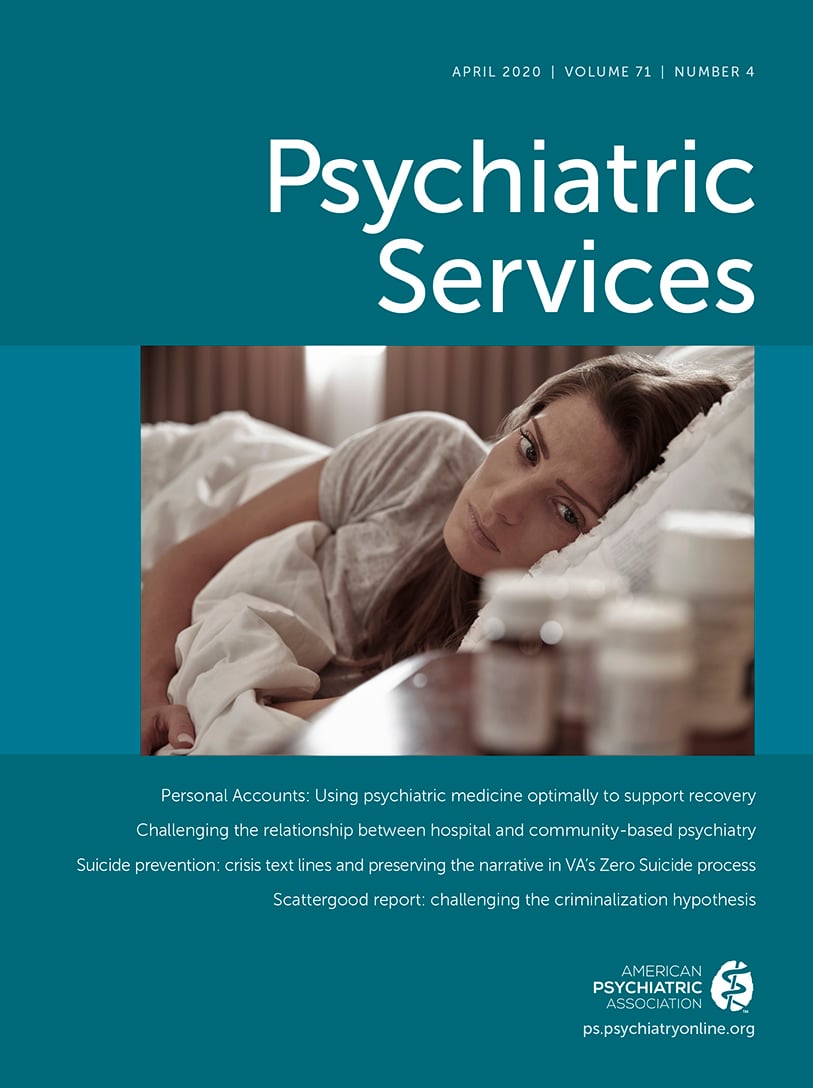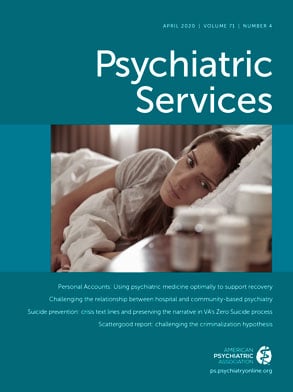Learning to use psychiatric medicine optimally to support recovery is a dynamic journey. It requires more than learning to take pills on schedule. As people recover, as they learn and grow, as they age, and as their concerns and interests evolve, the use of medication as a tool in recovery also evolves. This column highlights eight common challenges people face on this journey, my own included.
One challenge is moving from passively taking to actively using medicine. Many people start their journey taking medication passively. The first exposure to medication often occurs in the context of crisis or concern about well-being. In this context, medicine is usually administered by others (nurses, parents, etc.). In time, people leave the hospital or clinic and return to their lives. This shift sets the stage for the first challenge: making the transition from being a passive recipient of treatment to being an active partner in the cocreation of health. People experiencing this challenge might say, “I’m not applying for a job. I’m waiting for the medicine to make me better.”
A second challenge involves redefining self. There is a big difference between using medicine to relieve a headache and using psychiatric medicine over time. The former involves time-limited use of medicine to achieve short-term results. Usually, the sense of self is not challenged by using medicine to manage an acute health concern. However, using psychiatric medicine over time often leads to the question, “Who am I now that I use medicine?” This challenge involves aligning one’s personal beliefs, self-esteem, and the “story of self” with the realization: I use medicine. Overcoming this challenge frequently involves rewriting our story now that we use medicine.
Another dimension of this challenge is to discover a “new normal.” In my experience, it is widely assumed that psychiatric medicines return us to normal. For instance, those diagnosed as having psychosis might assume that they were the “normal me” prior to onset and diagnosis. After a successful trial using antipsychotics, people often assume a return to the “normal me.” It is true that antipsychotics help many people return to school, work, family, etc. However, the experience of being treated with medicine is not the same as reverting to the pretreatment, “normal me.” Instead, a third state or sense of self emerges: the state of “me on medicine.”
Experientially, the difference between “normal me” and “me on medicine” means knowing oneself in new ways. Some of the differences, such as getting along better with classmates, might be welcome. However, a person receiving treatment with medicine might experience unwelcome differences, such as duller emotions, compared with “normal me.” Sometimes people report a different taste in their mouths, bad breath, dry mouth, or saliva congealing in the corners of the mouth. Sometimes a previous sense of being fit and athletic requires adjusting to a body that is overweight and sedentary. I am not just describing side effects. These are examples of how the embodied self is transformed when using medicine. The challenge is to come to terms with the new normal of “me on medicine.” People experiencing the challenge of redefining the self might say, “I don’t feel like myself anymore.”
A third challenge is finding an acceptable or livable balance of trade-offs. Nearly all medications have wanted and unwanted effects. It is natural to want symptom relief, but at what cost? Sexual dysfunction? Is partial relief of symptoms worth the trade-off of metabolic syndrome? These are the questions people face on the journey to use medicine optimally. People experiencing the challenge of balancing trade-offs might say, “I’m not sure taking these meds is worth it.”
Using alcohol, cannabis, or other drugs to self-medicate can present another challenge on the journey to use medication optimally. Choosing to use drugs or alcohol instead of or in addition to psychiatric medicine can affect a person’s physical and mental health. The challenge is to discover this impact and make decisions about whether or how to reduce use or quit. People often need a great deal of support to overcome this challenge. People experiencing challenges with self-medicating might say, “Cannabis works better than meds for me.”
Medication fatigue is a fifth challenge. Using medicine over time is challenging, especially if the medicine is not particularly helpful. Finding the fewest medications at the lowest effective dose usually involves trying numerous medicines. Not all trials are successful, and this process can wear down resilience. It takes courage to try another medicine or to change dose. People might become hopeful that a new dose or medication will work, only to have those hopes dashed. In this way, the series of adjustments to medicine, including cross-tapering and related side effects, can be experienced as an exhausting rollercoaster ride of raised expectations and shattered hopes. People can grow weary of that process. Those facing the challenge of medication fatigue might say, “I feel like a human guinea pig.”
A sixth challenge is discovering whether the prescribed medication is helping. Providers often describe the effectiveness of medicine in generic terms. For instance, “this medicine will help organize your thinking” or “this medicine will make you less anxious.” However, these generic predictions may ring hollow or seem irrelevant to individuals. Using medicine optimally means discovering whether or how a medicine is helpful in ways that matter specifically to the individual. People experiencing this challenge might say, “I don’t think the meds are working.”
A seventh challenge is finding personal motivation for using medicine. Medical staff, family, a judge, or a friend might advocate for the use of medicine, but this encouragement is different from discovering a personal motivation for its use. This is especially true if the medicine poses risks or unwanted effects. People experiencing this challenge might say, “I’m quitting these meds as soon as the court order is over.”
Exploring the possibility of discontinuing or reducing the dosage of medicine is the eighth common challenge on the journey to using medicine optimally. This challenge often includes exploring alternative, complementary, and cultural approaches to wellness. It is not unfounded to wonder whether an initial psychotic episode was a one-time occurrence related, perhaps, to stress or a street drug laced with a toxic substance. It is not unfounded for people to wonder whether there will be a relapse if medicine is discontinued. Many people wonder whether complementary or cultural approaches might help, thereby replacing or reducing the dose of psychiatric medicine. Asking such questions is not a signal that people lack insight into their illness. Exploring alternative, complementary, and cultural wellness strategies—growing the toolkit of self-care strategies—is vital to recovery for most of us. Those experiencing the challenge of exploring alternative approaches might ask, “What happens if I stop the medicine?”
These eight challenges do not emerge in a linear fashion. Rather, they are dynamic and emerge in relation to a person’s recovery journey. Not everyone will experience every challenge, and some people will experience a specific challenge more than once. Each challenge represents an opportunity for clinicians to provide support. The key to effectively supporting people in overcoming these challenges is learning to listen for signs that the challenge is occurring. After a challenge has been identified, clinicians can work with individuals to determine how best to support them in overcoming the challenge.
What does optimal use of medication to support recovery look like? In many ways it looks like a regular day. Imagine a dad coaching his daughter in a Little League game. Imagine a student learning to make custard at culinary school. Optimal use of medicine means finding that sweet spot where, on most days, using medicine to help manage mental health challenges fades into the background, and living life takes center stage. Optimal use means using the fewest medications at the lowest effective dose. It does not necessarily mean being symptom free. Instead, it means developing a set of self-care skills and supports to help manage and minimize mental health challenges. I call these skills “personal medicine.” For many of us, finding the right balance between what we do (personal medicine) and what we take (pill medicine) is the pathway into the life we want for ourselves.
Optimal use of medicine also means finding personal reasons for using medicine. Often these personal motivators involve achieving and keeping the aspects of life that matter to the individual: a special relationship, a job, a driver’s license. Importantly, this dimension of optimal use is dynamic and changes as life priorities evolve. Optimal use of medicine means actively using medicine rather than passively taking pills. It means that medicine is experienced as helpful in ways that matter to the individual. Additionally, optimal use means finding acceptable and livable trade-offs between the risks and benefits, side effects and desired effects, of medicine.
Finally, optimal use of medication to support recovery involves aligning the “story of self” with the reality of being a person who uses psychiatric medicine. This dynamic dimension of the journey involves accepting, at least for a period of time, one’s choice to use medicine. For some, this acceptance is comfortable; for others, it is an uneasy peace. The desire to someday stop using medicine completely may still be compelling. But as a new day dawns, using medicine becomes not the goal, but a means to the life people want for themselves.

